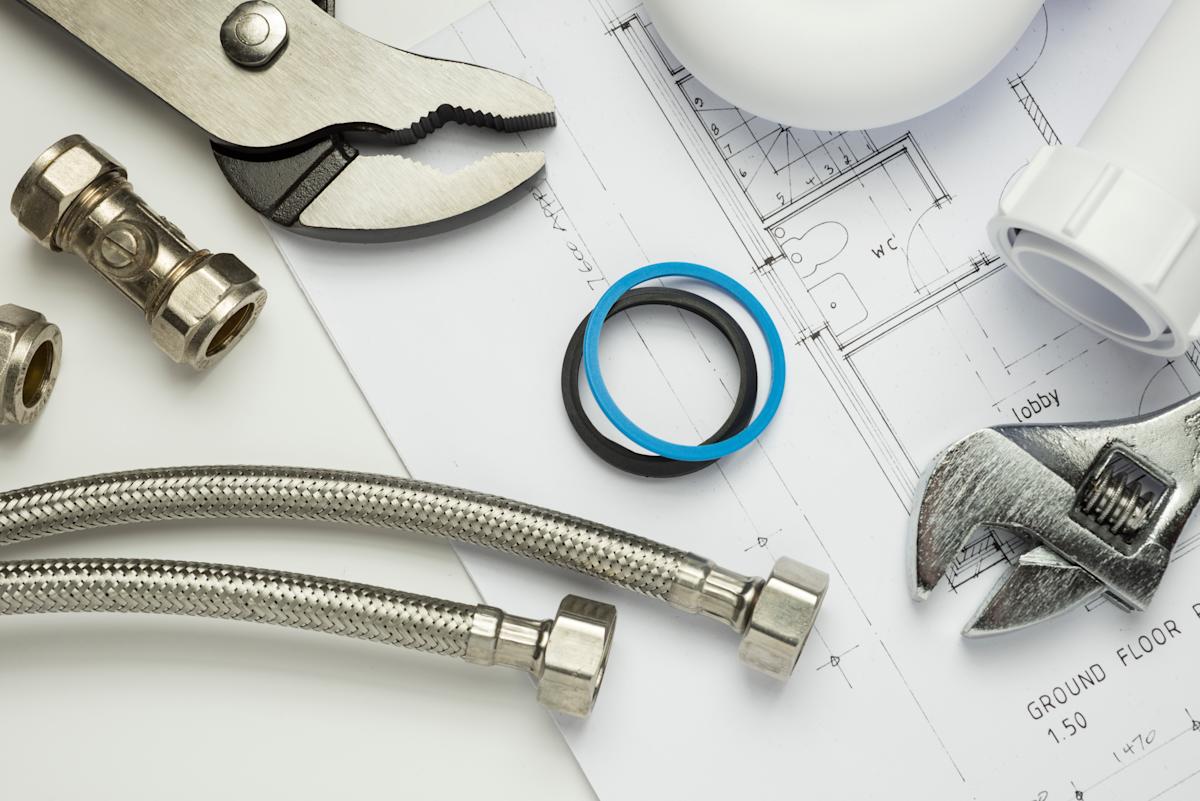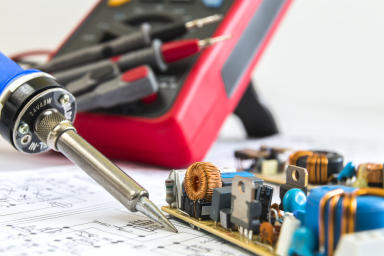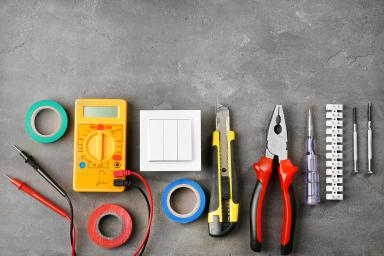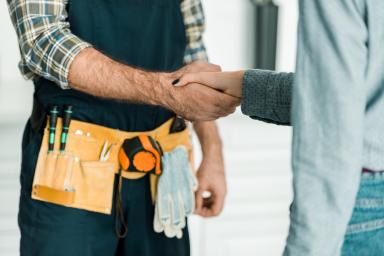How To Hire A Plumber

In the United States, almost half a million households experience inadequate or a lack of indoor plumbing. While cities like Chicago, Los Angeles, and New York have reports of declining plumbing poverty, the citizens in these cities still heavily rely on public restrooms and school or gym showers.
Moreover, cities like Miami and New Orleans experience the heaviest rain each year, with reported 67.4 and 63.4 inches of precipitation, respectively. According to data gathered by CurrentResults.com, residents of these cities encounter plumbing issues the most due to heavy rains.
Before delving into this nationwide plumbing issue and understanding why residents in the aforementioned cities struggle with these circumstances, we first need to identify what plumbing poverty means.
Plumbing poverty happens when there is a lack of reliable and safe water supply in a household. Unfortunately, a large number of people in the U.S. refuse to believe that this is an ongoing issue, since these citizens perceive it as only a rural problem. Because they believe that people in metro areas aren’t supposed to encounter this issue, it becomes an undiagnosed problem that poses greater risks to their community.
In fact, 73% of the households in metro areas lack proper plumbing. In New York, a whopping 65,000 residents live without a proper supply of piped water. Los Angeles and West Coast metros follow suit, with over 27,400 and 44,200 people who do not have access to piped water in their homes.
With the number of plumbing issues that need attention, homeowners and renters tend to DIY their projects due to the expensive costs of hiring a plumber. These DIY projects could involve fixing a clogged toilet or drain, adjusting the water pressure in the shower, or installing a faucet. Doing it yourself may fix the problem temporarily, but you may eventually face a more expensive issue if you patch the issue instead of completely fixing it.
This article will give you a clearer understanding of when and how to hire a plumber, why you should seek a professional instead of doing it on your own, and how a plumber can provide a permanent solution to your issues while improving the value and convenience of your home.
When Should You Hire a Professional Plumber?
As a homeowner or renter, especially if you’re settling into a property for the first time, there are a few things you need to check in order to make sure they’re working properly. Some of these fixtures include faucets, showers, bathrooms, or heating systems. These features all connect to one major system in the property — plumbing.
In a typical home buying process, Realtors refer buyers to plumbing professionals who can inspect the state of the property. Most times, the homebuyers themselves request the assistance of these professionals to make sure they’re getting their money’s worth for the property they’re about to buy. This highlights the importance of having a professional plumber work with you throughout the process.
There are two ways a plumber can help you as a homeowner or renter.
First, if you want to improve the features of your property, especially the kitchen or bathroom, a plumber can help you. They can install or repair fixtures such as toilets, faucets, sinks, and showers. Second, plumbers can work on household upgrades like a new dishwasher, garbage disposal, or water filtration system.
However, you might wonder if you actually need a plumber when you can do these repairs and installation projects by yourself. Yes, you have the option to DIY; however, a professional plumber is the only one who can ensure that these projects are conducted with safety measures. Only professional plumbers can perform inspections on a property and provide reliable reports about its current state while also providing suggestions on how to prevent future plumbing issues. Furthermore, they are experienced with the process of obtaining permits for plumbing projects like room addition, extension, or alteration.
DIYing a project is a cheaper option, but the consequences can be more costly than hiring a good plumber to finish the job efficiently and effectively.
What You Should Look for in a Professional Plumber
In June 2022, the United States Attorney’s Office of the District of Massachusetts reported that a plumbing company owner in Boxford was sentenced to prison for fraudulently billing its clients. It overcharged them for construction, plumbing, and maintenance projects that did not take place at all. The customers paid a hefty sum for a project that did not happen due to the plumbing company’s schemes. This is the sad reality of hiring service providers — some plumbing contractors may appear legitimate but would end up duping customers out of their money. To avoid this, it is essential that you vet the plumber first to see their qualifications and track record before hiring them.
To avoid any plumbing fraud, homeowners and renters need to look for signs before hiring a plumber. These signs can include:
They show respect.
Your time, home, and money are resources that you value a lot, and hiring a plumber who respects them already shows their reliability. A respectful professional arrives on time for the job with the proper equipment. They also take safety and cleanliness precautions, like wearing plastic booties and other protective gear, when entering your home.
They provide the necessary paperwork.
Other than their work behavior, you should also check one of the most important details when seeking the services of a plumber — documentation. To determine whether you’re hiring a good plumber, make sure they are licensed and insured. Verifying a plumber’s license includes checking for information like their company name and their license number. You can check local directories as well to confirm their identity. They should also provide a clear estimate of the project, along with their work schedule and draft of the contract, if available.
They have favorable reviews or peer recommendations.
When purchasing a product online, you check the ratings of previous buyers to determine if the product is genuine. When hiring a plumber, you should also do the same by browsing the reviews on their website or social media accounts.
Another way to make sure you’re hiring a good plumber is through word of mouth. Your friends or family members can be a great source of plumber referrals.
They correct any problems that arise or refer you to another professional if they think they can do the job better.
The list goes on for signs to look for to make sure you’re hiring a good plumber. As such, when looking for a plumber, keep these considerations in mind to distinguish a reliable professional from the rest.
Cost of Hiring a Plumber
The U.S. Bureau of Labor Statistics reported that a plumber earns an average of $30 per hour. However, plumbers can charge you more depending on the type of project they’re working on, as some assignments tend to take more time to finish and require expensive materials. See the table below for reference.
Based on the expertise of the plumber, you might also need to pay less or more. For instance, if you hire a master plumber, you might need to pay around $80–$200 per hour, whereas you may pay $45–$90 for an apprentice.
Step-By-Step Process of Hiring a Professional Plumber
Now that you know the cost of hiring a plumber and the ways to determine their reliability, you can start to look for one who can work on your project. The step-by-step process below will help you find a plumber who fits your needs.
1. Determine Your Hiring Needs
You must identify the problem in your property, or at the very least have a general idea of the area you want a professional to inspect, before hiring a plumber. Once you identify the issue at hand, you will need to decide if you want a full-time plumber to work on this project or if you think a contractor or part-time worker can finish it.
2. Start Finding a Professional
After determining the plumbing issue, you can now start looking for a plumber who can do the job. This part of the process can be lengthy, as it requires you to be meticulous about the details of the plumber you’re looking for.
One of the most reliable things you can do is ask your friends and family members if they can recommend a good plumber to you. This way, they can give you their thoughts on how this plumber worked on a specific project, allowing you to determine if they fit your plumbing needs. Referrals like this are also likely to give you a discount once you’ve met with the recommended plumber.
If your family and friends can’t refer you to a plumber, you can start looking online. The internet can be a great source for experienced plumbers; however, safety precautions need to be practiced since identifying a reliable plumber can be difficult. One way to do this is to look at their online reviews. A good plumber has favorable, consistent reviews. You can also check the Department of Labor or Consumer Affairs in your state to look for any existing complaints about a specific plumber.
Once you’ve identified a few plumbers who can work on your job, you can start calling them one at a time for an estimate, which will be the deciding factor if you’re going to hire the plumber.
3. Provide the Details of the Project and Your Budget
When you’re already on the phone with your selected plumber, inform them of the project’s specifics. This way, they can give you an estimate and help you determine if your budget is up for the cost. During this process, you might have to call several plumbers and compare the estimates they provide. This is also one way to filter your choices, as some plumbers are honest enough to decline a project they think is beyond their capabilities.
If a plumber provides an estimate that is beyond your budget, you can still inform them of your expense cap, as some might find a way to work around your expenses. You should take note that when a plumber gives an estimate, you need to respect their calculations since they have expertise and experience in the industry.
You can also use this opportunity to ask the plumber questions regarding your project. Their answer can serve as an identifying factor for whether they’re fit for the job or not. If they give knowledgeable responses without using jargon and recommend viable options, you can consider them on your list. However, if they seem to dismiss your concerns or provide an estimate without explaining where the expenses would go, you might need to look for another plumber.
4. Understand the Estimate
After having a conversation with a plumber and receiving an estimate, the first thing you need to do is have them explain the estimate. This will give you a clearer view of the breakdown of costs involved in your project and prevent you from covering unexpected expenses along the way. Your plumber will likely walk you through the estimate and explain its importance in making sure your project is managed smoothly. The estimate will also clarify resource allocation as well as help determine opportunities where you can save costs.
In a typical plumbing estimate, you will see various factors that affect the cost of the project, such as:
The project’s urgency, duration, and complexity.
Material and equipment types that need to be used.
Cost of labor and number of workers needed.
Project location from the contractor.
Choice of contract.
Estimates will also cover additional costs like:
Permits involved in the project.
Waste disposal.
Unexpected circumstances.
Have your plumber explain these factors to you so you can have a better idea of the project expenses and even try to negotiate the cost with your plumber.
5. Determine the Plumber’s Reliability
Before taking the final step of hiring a plumber, you need to make sure they are reliable in the field. As discussed in the previous section about what to look for in a plumber, you must first check for their documentation, such as their license and insurance. You can also go ahead and ask what types of tools they use for their projects, especially if you specifically want your plumber to use eco-friendly materials. You can set up an interview with them and have them personally inspect the house.
If they possess all the qualities you need in a plumber, and if their projected cost fits your budget for the project, you can go ahead with signing the contract and hiring the plumber.
Make Sure Your Home Plumbing Is in Good Hands
By meticulously assessing a plumber, you can rest assured that you have a professional who can do the job. Not every plumber can fulfill every requirement you need for your plumbing issues, which is why following these recommended steps in the hiring process can help you make informed decisions.
The ultimate goal of hiring a plumber is to make sure your worries are addressed and to keep your home’s plumbing systems in good condition. So, whether you have an extension project in mind or just a dripping faucet at home, skip the DIY and let the professionals handle it.
FAQs
Do you tip plumbers?
Although it is not required, the decision to tip will be up to you. Plumbers usually do not expect to receive tips since they are professionals who underwent training in the industry and receive wages fit for their role. Moreover, the cost of hiring a plumber is already high enough, and leaving a tip would stretch the line for the client. But in the event that you were delighted by the plumber’s work, you can leave a well-intentioned tip. However, before you do this, check the plumber’s company website to look for information and guidelines about tipping.
What should a plumbing quote include?
A plumbing quote, most commonly known as an estimate, would include various key components of the project, such as the scope of work, labor and material expenses, taxes, and additional fees. The quote can also vary based on the plumber and the project, including a flat rate, hourly rate, or square foot quote.
Do plumbers deal with gas?
Yes, plumbers can deal with issues involving gas leaks. If you smell gas on your property, it’s best to contact a plumber right away. They can turn off the gas quickly and help reduce the risk of carbon monoxide poisoning. Plumbers also have the technical expertise to correct issues with your property’s gas line components, such as retrofitting existing systems, fixing a leak, or replacing corroded or old pipes.
Is a leaking toilet pipe an emergency?
Yes. A leaking toilet pipe can lead to an overflowing toilet, which makes it to the list of plumbing emergencies. While there are various DIY solutions to a leaking pipe, the more you give temporary fixes to the problem, the bigger the issue you might face in the future. That’s why hiring a plumber to do the job can help you save on expenses in the long run.
Does homeowners’ insurance cover plumbing problems?
Yes, homeowners’ insurance usually covers the cost of damage from unexpected or sudden plumbing issues, like appliance leaks or burst pipes. However, homeowners’ insurance does not cover the repair or replacement of broken appliances. Instead, this will be covered by equipment breakdown insurance, which is an endorsement that you have to add personally to your plan.
Expertise.com StaffAuthor
At Expertise.com, we're passionate about guiding people to find the best in life, whether they're researching how to start a small business, planning a home remodeling project, or discovering a new hobby.




